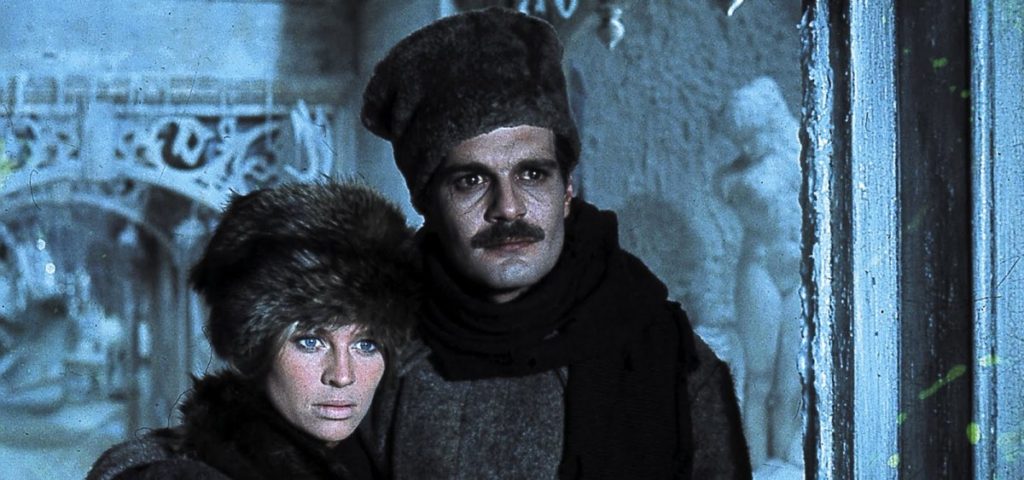
Thursday
A new book explains how and why Boris Pasternak’s Nobel-prize winning Dr. Zhivago played an important role during the Cold War. Peter Finn’s and Petra Couvée’s The Zhivago Affair: The Kremlin, The CIA, and the Battle Over a Forbidden Book makes it sound as though former English majors were running the CIA’s Soviet Russia Division as they assessed the potential impact of the novel and then acquired, published, and helped distribute it. I owe my awareness of the book to Rebecca Renner’s summary in Literary Hub.
Renner explains why Soviet officials found the novel objectionable even in the post-Stalin era:
Its main character is a doctor and poet, Yuri Zhivago, who treats soldiers on both sides of the war during the Russian Revolution. He eventually returns home to find the Moscow of his childhood changed beyond recognition, with communists controlling the city, chaos reigning, and the rarified world of art and intellect gone forever, or so it seemed to Zhivago.
Amidst the novel’s famous love affair weaves a thread of free thought that questions deeply held Soviet beliefs.
“Not long ago there was a sacred duty to the motherland, military valor, lofty social feelings,” Pasternak writes in Doctor Zhivago. “But the war is lost, that’s the main calamity, and all the rest comes from that, everything is dethroned, nothing is sacred.” Zhivago waxes poetic and loves to the depths of his soul, but beset within the literary gilding, the reader will find a character who is very much a part of Russia’s former world of finery, who, much like his author, is lost in the present.
Doctor Zhivago laid Pasternak’s heart bare. It revealed him as a less-than-perfect communist in an era when the sin of all sins was longing for the past.
According to Zhivago Affair, exposing the USSR’s fear of a novel was a coup for the United States:
“Books were weapons,” writes Finn. “If a piece of literature was unavailable or banned in the USSR or Eastern Europe, and the work might challenge or contrast with Soviet reality, the agency wanted it in the hands of citizens in the Eastern Bloc.”
It didn’t matter to the CIA that the novel doesn’t directly critique the Soviet system. What’s important was its humanistic vision, which Pasternak contrasts with ideological commitment:
“Pasternak’s humanistic message—that every person is entitled to a private life and deserves respect as a human being, irrespective of the extent of his political loyalty or contribution to the state—poses a fundamental challenge to the Soviet ethic of sacrifice of the individual to the Communist system,” John Maury, the Soviet Russia Division chief, wrote in a declassified memo. “There is no call to revolt against the regime in the novel, but the heresy which Dr. Zhivago preaches—political passivity—is fundamental. Pasternak suggests that the small unimportant people who remain passive to the regime’s demands for active participation and emotional involvement in official campaigns are superior to the political ‘activists’ favored by the system. Further, he dares hint that society might function better without these fanatics.”
Renner notes that the CIA
wanted the novel to reach as many average Soviet citizens as possible. If bombs couldn’t shake the ice out of the Cold War, planting doubts in the minds of the USSR’s citizens had the potential to rupture the superpower from within.
Therefore, it wasn’t Soviet émigrés who got the book to the west, as has previously been assumed. We now know that Soviet accusations about CIA involvement were well-founded. According to Zhivago Affair,
The operation to print and distribute Doctor Zhivago was run by the CIA’s Soviet Russia Division, monitored by CIA director Allen Dulles, and sanctioned by President Eisenhower’s Operations Coordinating Board, which reported to the National Security Council at the White House. The agency arranged the printing of a hardcover edition in 1958 in the Netherlands and printed a miniature paperback edition of the novel at its headquarters in Washington, D.C., in 1959.
Finn and Couvée note that the CIA also printed smaller versions on onion skin paper that could be smuggled into Iron Curtain countries and that were handed out to Soviet tourists and students in the west. KGB officers told students they could take and read the book “but by no means bring it home.”
I’ve thought a lot about the use of culture in the Cold War since I myself was a Fulbright scholar in socialist Yugoslavia in 1987. Along with other Fulbrighters visiting Eastern European countries, I spent a summer at UCLA learning Slovenian and then threw myself into teaching and meeting people in Ljubljana and elsewhere. The American values we brought with us, including political tolerance, openness to student views, and excitement about multiple perspectives, were more powerful than any focused propaganda effort could have been. We were soldiers in the Cold War without even knowing it.
Doctor Zhivago could have had a similar impact. For those brought up in a rigid system, genuine artistic exploration can be exhilarating. The CIA sullied its reputation as it attempted to topple various regimes—the world is still paying for its 1953 Iran coup—but it did a better job with the culture wars.